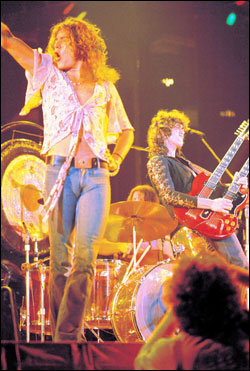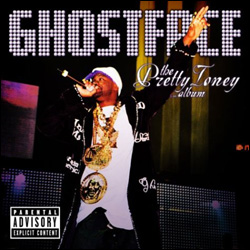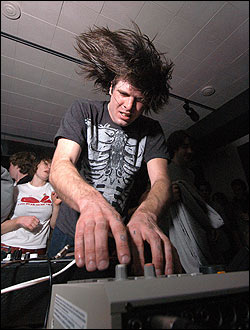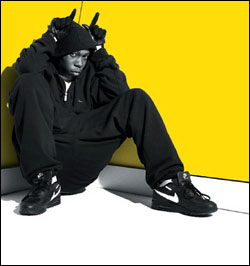YOUR INITIAL REACTION to a live Led Zeppelin album in 2003i.e., why?is probably the correct one, if for all the wrong reasons. The greatest rock band of all time? Capital-R Rock for sure, if not little-r rock, which was the band that made Exile on Main Street. Or lowercase pop rock, which was the Beatles, who probably nab art rock, too. This stance tends to make for reviews as enlightening as stating that you admire the way air keeps you breathing, fodder for haters of received wisdomand who could blame them for getting irritated? But the bloated/ fascist/faceless accusations leveled against Zep were always the lamest, especially once those arguments became institutionalized via punk rock. Post-punk and indie rock eventually staged a partial reconciliation with classic rock, finding use for AC/DC (paging Steve Albini) and Black Sabbath (duh), among others.
But Zep? Zep were two studio-obsessed genius-hacks, along with two teenagers who lucked into a ride on Charlie Bucket’s golden ticket, one a Neanderthal lorry driver with Paul Bunyan-sized drumsticks, the other a praying mantis in a fright wig. Without a single original idea in their heads, Page, Plant, Jones, and Bonzo stole from everything they heard and lovedEnglish folk, James Brown, reggae, disco, Indian classical music, whateverand made it rock, even Rock. And, of course, they blew up the blues to IMAX proportions, made Saturday matinee fodder out of esoteric religion, and performed extramarital acts with fish. In other words, they were a pop band.
Stylistic polymaths and inveterate capitalists, on tape Zeppelin were as slippery and essentially inimitable as any of the great bubblegum producers. So their real influence tends to show up among similar autodidacts with an ear for both a hook and the epic (Prince, the Neptunes), while the “Zeppelin-esque” bands (Whitesnake, Jane’s Addiction) tend to cop the most obvious stylistic traits (insectoid warbling, interminable solos). Heavy metal never really got to grips with Zep, reading their virtuosity as degraded high art rather than the bored preening of men entering middle age. Listen to their classic studio albums now, and what strikes you is how tight they are: sculpted, weighted, things of poise and beauty.
Having never had the pleasure of attending one of the supposed fascist indoctrination sessions that were the live Zeppelin experience (except perhaps in utero), I must admit that I’m a bit baffled by the rapturous reception of the new How the West Was Won (Atlantic). In its favor, West contains less filler than the 50 Cent album, so at three discs to his one, I guess they’re already ahead. It’s also got less filler than the Velvet Underground’s similar Bootleg Series Volume 1: The Quine Tapes, another triple-live set released two few years ago. Opening with the ambient hum of a packed arena, “Immigrant Song” storms the beaches, sets fire to Lou Reed, and throws his (wo)man over one shoulder, kicking and screaming. The Velvets used their song called “Rock and Roll” to talk about how great rock and roll was. Zep said, “It’s been a long time since I rock and rolled”and then they did! Gosh!
JOHN BONHAM EASILY steals the show here. Maybe it’s just growing up on hip-hop and disco, but obsessive drum technique is much easier to digest than Jimmy Page channeling John Fahey or Ravi Shankar or Dr. Demento on my dime. Luckily the inner-space ragas are kept to a minimum on disc one, except for an inexcusable trip on memory bliss in the middle of “Heartbreaker.” It’s formless, meandering glop, guitarlike oatmeal dribbled down an old man’s shirt. And when the audience starts clapping along (to what?), it’s “Hey Jude”/”all-the-ladies, now-the-fellas” cringe-worthy. But then Bonzo comes crashing back in, and all is immediately forgiven/forgotten. Led Zeppelin were funny like that.
The latter two discs remind us why witless early rock critics slotted Zep with Jethro Tull and Chicago in the first place. Disc two, easily the weakest of the three, drops an embarrassing old-timey rock-and-roll medley into “Whole Lotta Love,” proving how much they needed both the studio and the cover of all those genre exercises in order to make use of the elfin castrato at the mike. (For all the evidence you need of Robert Plant’s mike-swinging abilities, consult the simultaneously released live-footage compendium, DVD.) All the well-meaning historical revisionism you want to use to justify the excesses of these barge-sized chunks of . . . stuff (not songs somuch as suites so much as late 20th-century field recordings) is just so much gnats-against-the-windshield, the best argument despite yourself for their ultimate Just There-ness.
Edited down to a single or even double disc, How the West Was Won could have named and shamed most other discs released this year. But that would be false advertising. As is, it’s like Ludacris’ SUV: It’s even got a trailer hitch with a barbecue pit. That’s cool and all, but it makes hard, fast turns a pain in the ass. Which is, in the end, about as ponderous as the new Radiohead. As it turns out, it’s also a lot more revealing about this here modern America, in spite of itself.








